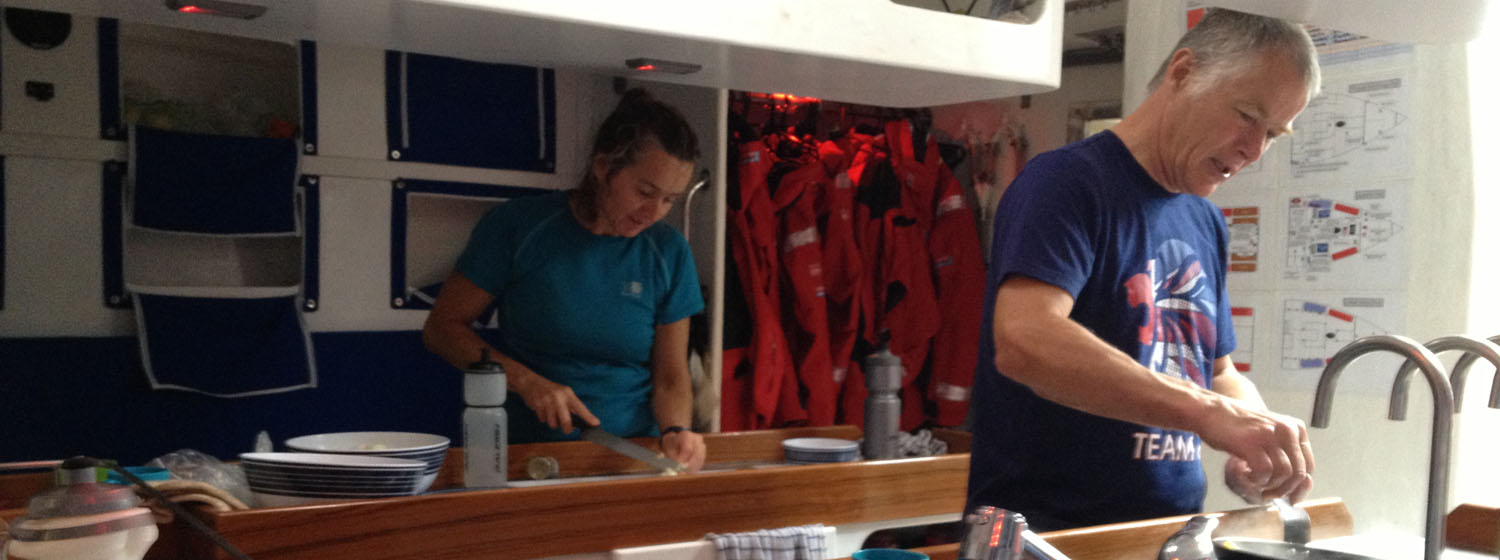What does it take to feed a Clipper Race crew?
18 June 2015
Being organised when planning menus and buying the right ingredients to be able to dish up satisfying food can make the difference between winning and losing the ocean odyssey that is the Clipper Race.
Just as good preparation can make the difference in achieving a podium finish, so can effective victualling and proper organisation for food that will provide much-needed energy so crews can work the boat harder.
Clipper 2013-14 Race round the world crew member Richard Dawson, and victualler for Derry~Londonderry~Doire, is leading a course for the new generation of 12 victuallers this week.
Each of the 12 teams' victuallers is responsible to their skipper for ensuring their team is properly fed and watered for the duration of the race.
With the race’s extreme conditions, high-energy physical requirements and a budget of just £3.50 a head a day despite a daily energy requirement of 5,000 calories, knowing which ingredients to buy in different countries to make the best meals is vital.
“You must be organised, good with numbers, an effective communicator and resilient to be the victualler,” said Richard. “It is a big role and can be very tough. On top of the task of researching, buying and storing and the ingredients, you will also need to think about any extra galley equipment needed on board, make sure it is kept in good condition and help crew keep it clean and in order.
“I consulted with my team a lot early on about what meals they would like to have on the plan. That helped a lot. We did change the plan sometimes and substitute meals that didn’t work so well or crew were bored of but there also has to be some compromise.
“Sticking to the budget is also very important. We actually had a surplus towards the end of the circumnavigation and were able to splash out on ‘luxury’ items such as fillet steak and bacon which was a real morale booster.”
Richard gave advice on the following areas:
- The responsibilities of the victualler
- How to plan menu cycles
- Nutrition/Food quality – the makeup of food ie carbohydrates, fat and protein, weight loss on board etc
- The question of the weight of food on board including the freeze-dried option
- Planning for crew of different faiths/crew with allergies/ vegetarian/vegan crew
- How to research what is available at foreign supermarkets before stopovers
- Planning meal budgets
- Supplementing meals with snacks to make up the race’s energy requirements
- Food hygiene
